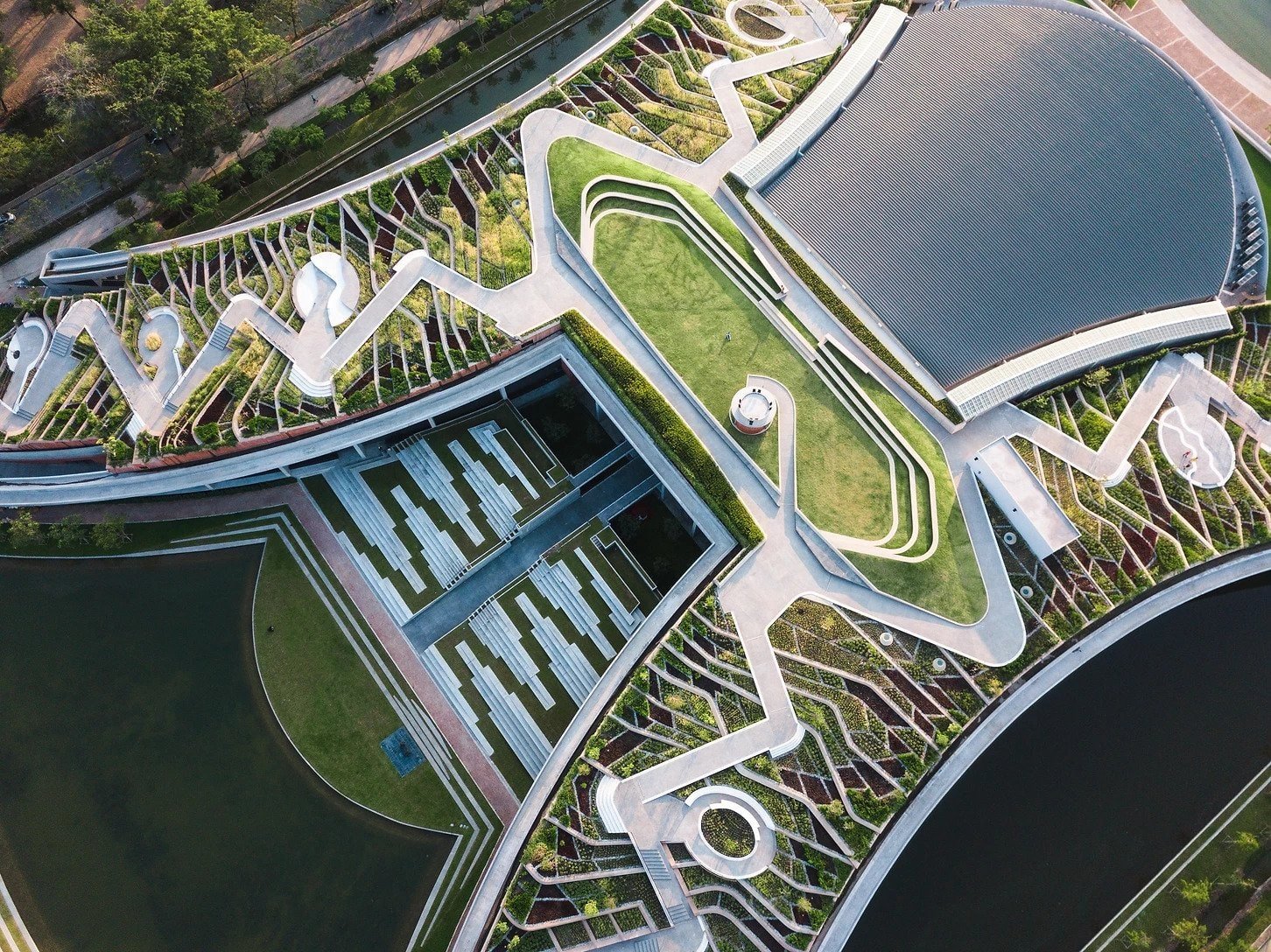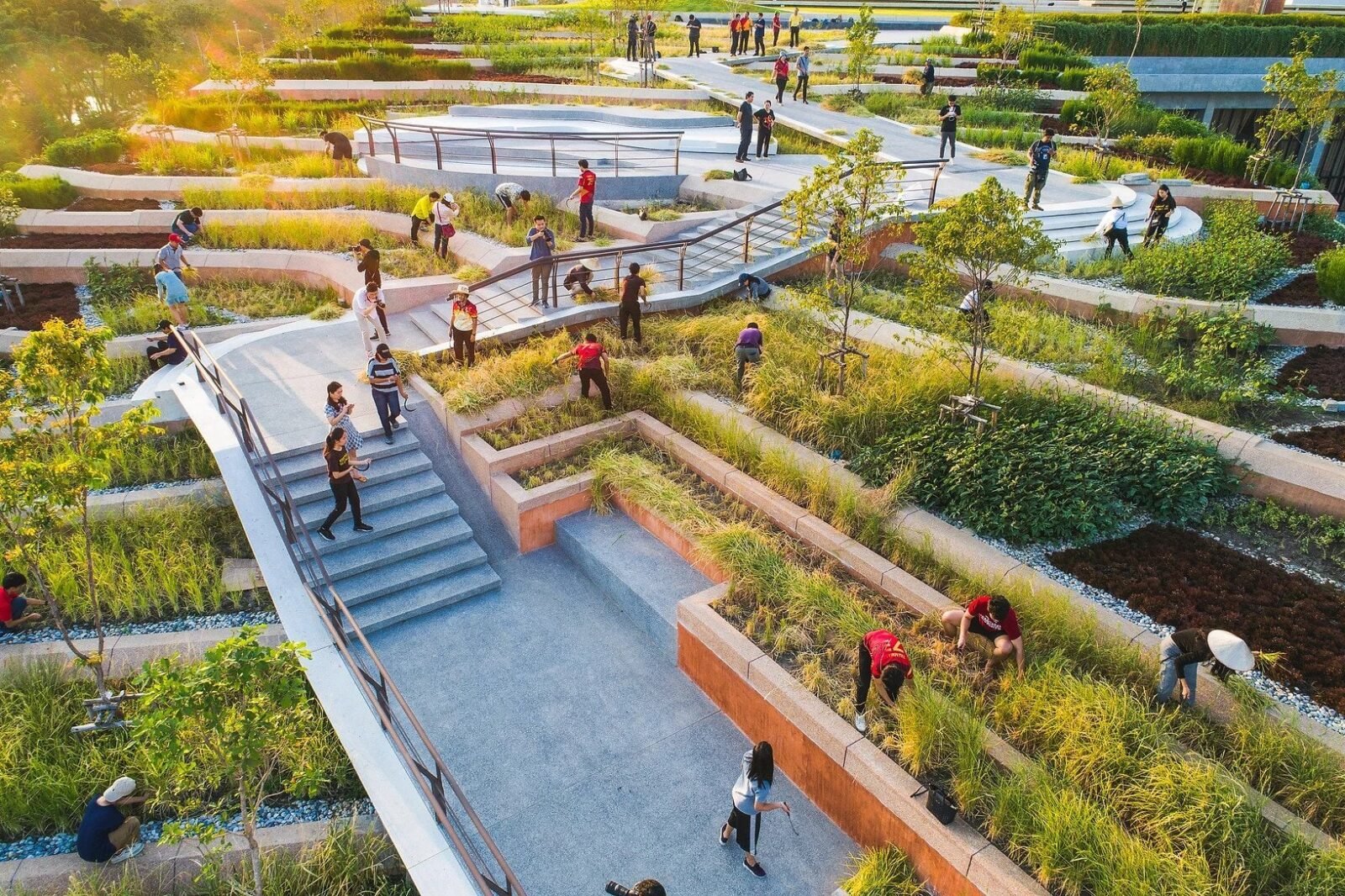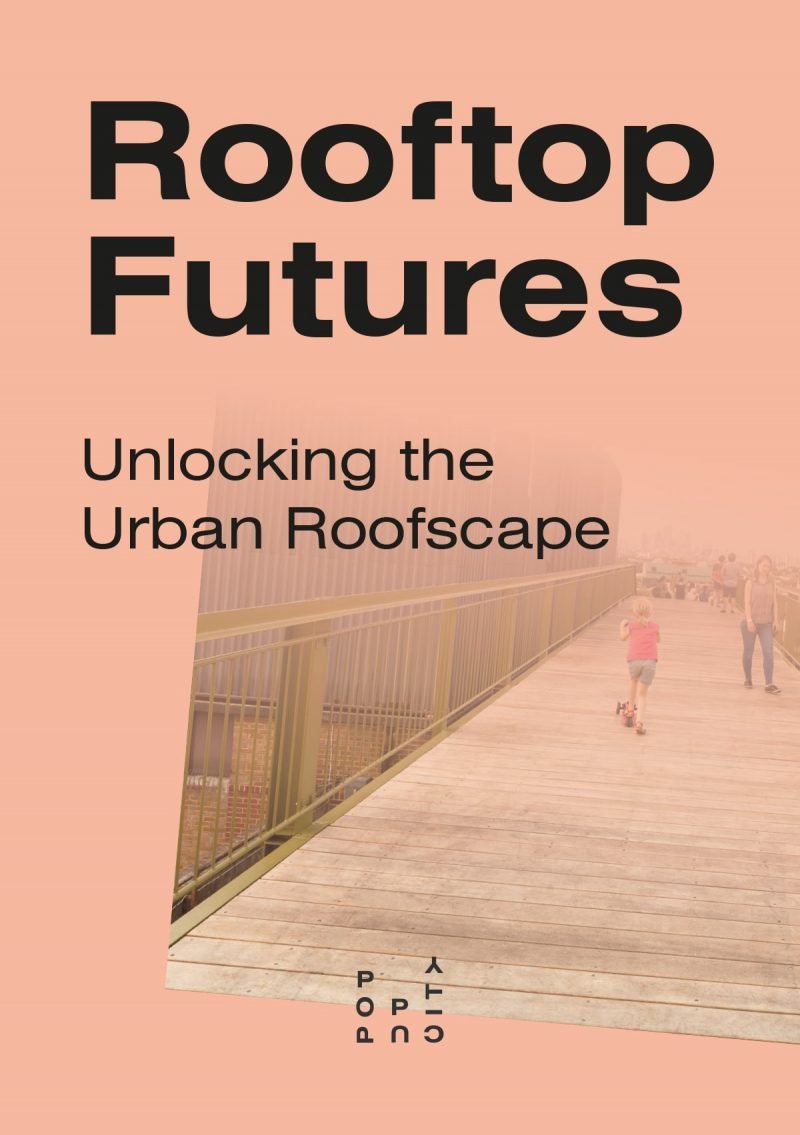Asia’s Largest Rooftop Farm Is a Rice Terrace on Top of a University

As the second oldest institution of higher education in Thailand, Thammasat University is well-known throughout the country to be a highly competitive school that has produced some of Thailand’s most famous politicians and thinkers. Now, the university has a new claim to fame, as the home of Asia’s largest urban rooftop farm.
Completed in December of last year, the Puey Park for People and Sustainability is a 22,000-square-meter green roof located at the top of Thammasat University’s Rangsit Campus building. Created by Bangkok-based landscape architecture and urban design firm LANDPROCESS, the park draws inspiration from traditional rice-farming practices, and is designed to be a cascading rooftop farm that mimics local rice terrace landscapes.

The farm conforms to the H-shaped floor plan of the campus building, using modern green roof technologies to slow down and retain runoff rainwater with its sloped levels. Any excess runoff is collected and stored in the farm’s four massive retention ponds, which can hold up to 3,095,570 gallons of water combined. According to the architects, the farm is not only able to grow up to 135,000 rice meals each year but also produces other vegetables that are served in the campus’ green cafeteria. From there, all edible leftovers are distributed to the local community, while the food waste is composted and returned to the farm as fertilizer for the crops.

With its unique design, Thammasat’s green roof not only pays tribute to the traditional ingenuity of local rice farmers, but also responds to many pressing environmental issues faced by cities in Thailand and throughout the region. Although Southeast Asia is historically home to abundant agricultural societies, rapid urbanization in the region has transformed its once fertile and productive land. Rangsit, for example, was formerly a vast rice-paddy field that was turned into a metropolitan city in support of Bangkok’s expansion into peri-urban areas.


Although Southeast Asia’s economies have greatly benefited from the growth of cities in the region, its urban sprawl has also come hand in hand with an increased vulnerability to the impacts of climate change. Bangkok, in particular, experiences periodic droughts and flash floods, which threaten the city’s water and food supplies. In this context, through its sustainable and circular farming system, the green roof at Thammasat’s Rangsit campus can be understood as an integrative solution that both revives the land that was once destroyed for urban expansion, and also improves the city’s food security and climate resilience.




